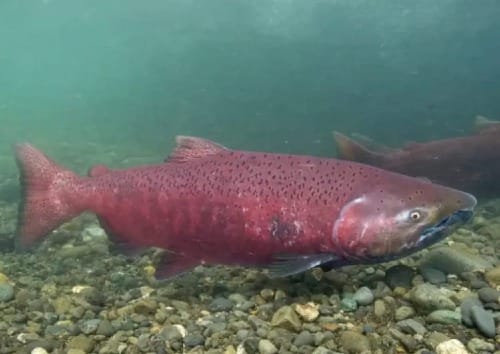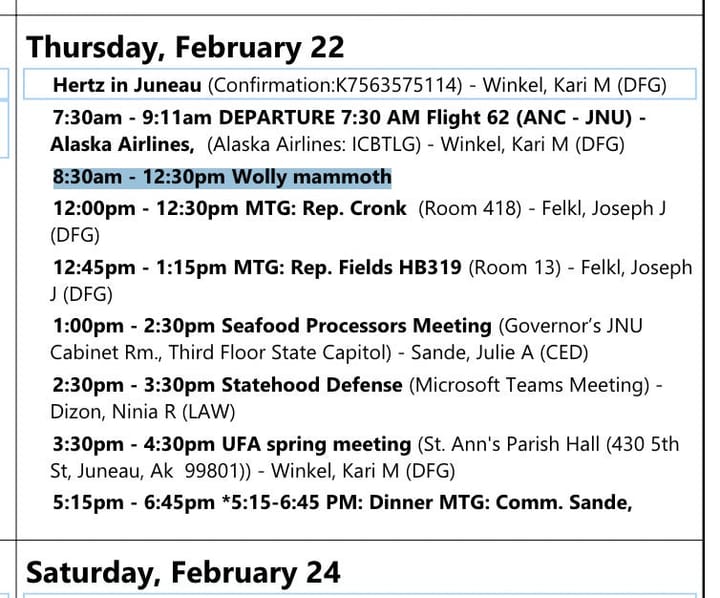Interesting Stuff: Apache's return to the North Slope, AIDEA's pro-Pebble legal contract and the death of snow days
Also: The pilot in the Halibut Cove float plane-boat faceoff makes her case to a federal judge, and a high-profile hire in the Alaska Senate.
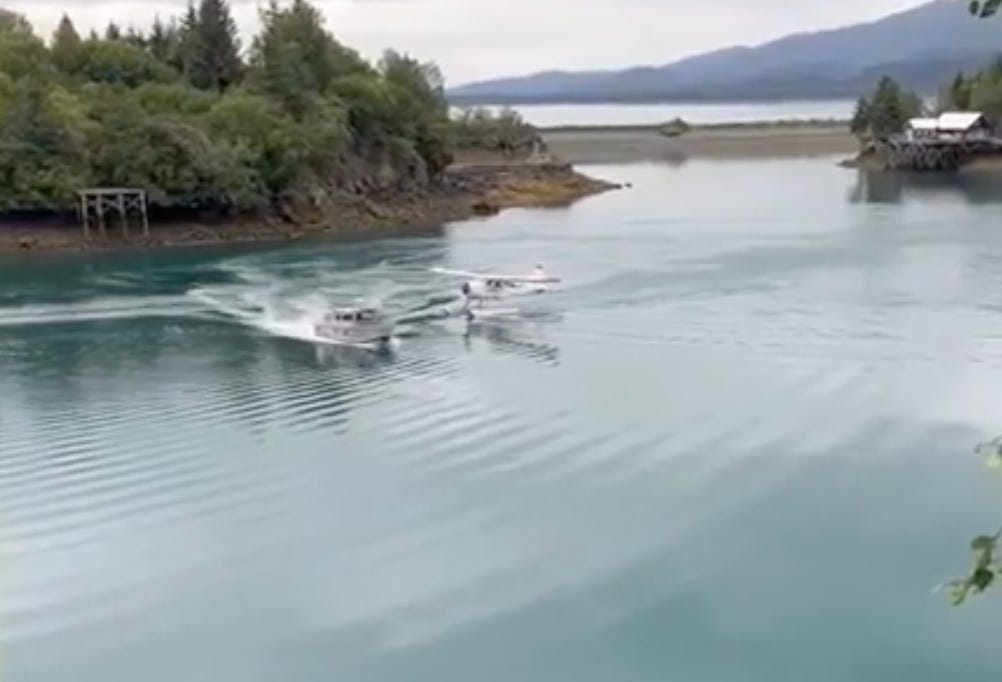
This edition of Northern Journal is sponsored by The Boardroom, a shared workspace in downtown Anchorage. Yes, there’s free kombucha and beer; there’s also a fun community of workers and events like last week’s gyro lunch (with vegan options!). Check out membership options here.
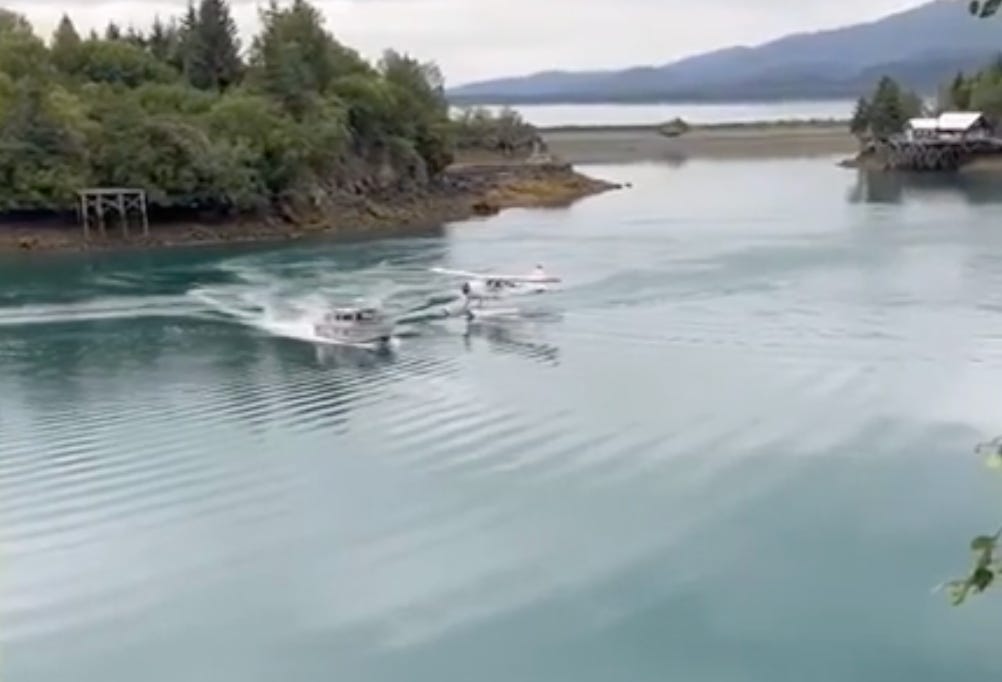
Skipper in Halibut Cove boat-plane faceoff says pilot ignored community safety rules
In her first detailed public statements about the incident, the skipper of the boat that last year challenged a float plane in the Kachemak Bay hamlet of Halibut Cove said she acted because the plane’s pilot had ignored community safety rules and put residents at risk.
Marian Tillion Beck said she “was so upset that she got into her boat and chased after the pilot to send him a message,” because she “felt helpless and did not know what else to do.”
The resulting encounter, in which Beck drove her boat across the plane’s path multiple times, went viral on social media.
Northern Journal is a reader-supported publication. To receive new posts and support my work, consider becoming a free or paid subscriber.
Beck’s response came in a memorandum her lawyer submitted recently to a federal judge. The submission is in advance of an upcoming hearing where Beck is expected to be sentenced on a misdemeanor charge of gross negligent operation of a vessel — in a plea deal with prosecutors that would dismiss a separate charge of attempted destruction of aircraft.
Beck has already agreed to pay a $25,000 fine and give up her mariner’s license to the U.S. Coast Guard, though she and prosecutors disagree on whether she should have to spend one year or five years on probation.
Beck’s attorney, Michelle Nesbett, last week submitted the 14-page sentencing memorandum, which describes "many close calls" between Halibut Cover residents and float planes. Beck also submitted a four-page letter from the skipper of a mail boat, the Stormbird, who said she watched part of the encounter between Beck and the plane unfold.
Beck’s memorandum said that working with the Federal Aviation Administration, Halibut Cove residents have established a “community regulation” that calls for float planes to avoid a narrow entrance to the cove during specific windows when a local ferry, owned by Beck, is operating. The community regulation is self-policed and has no force of law, a federal aviation official told Northern Journal.
Leading up to the incident, the pilot of the float plane had "failed multiple times to abide by the community regulation, and had cut off the ferry on multiple days," Beck’s memorandum said.
Elsa Bishop, who was driving the Halibut Cove mail boat at the time and said she partially witnessed the incident, wrote her own letter attached to Beck’s sentencing memorandum. Bishop said the encounter was “the culmination of years of frustration, fear, and gaslighting of our community to convince us we are overreacting to the increase in seaplane activity, despite witnessing accidents and close calls, and being told we have no say in preventing a horrific tragedy from transpiring.”
Federal prosecutors submitted their own sentencing memorandum saying Beck displayed a “high degree of reckless indifference and a substantial departure from the ordinary standard of care for the safety” of the float plane and its passengers and pilot.
Prosecutors and Beck’s attorney did not respond to requests for comment.
Oil company trio plans major North Slope drilling effort this winter
A publicly traded oil company is returning to Alaska for a major North Slope exploratory drilling campaign this winter, in a three-way partnership with a proven wildcatter and another firm already developing a major project in the state.
Houston-based APA Corp., whose subsidiary Apache closed its Alaska office in 2016, is part of the oil company consortium planning three different exploration wells with three different drilling rigs this winter. The campaign will require 44 miles of ice roads and an ice bridge over a fork of the Sagavanirktok River, according to documents filed with the state Department of Natural Resources.
Also participating are Colorado-based Armstrong Oil and Gas, whose president, Bill Armstrong, is known for discovering the enormous Pikka field in a previously-overlooked geologic formation on the North Slope. Santos, an Australia-based oil firm that’s now moving Pikka into production, is the third company involved.
Much of the oil industry’s recent focus for drilling has been on federal land west of the North Slope’s major existing infrastructure, which is centered at the huge Prudhoe Bay field.
But amid major opposition from conservation groups to expanded development on federal land, APA, Armstrong and Santos are targeting a possible deposit on state land far to the east — between Prudhoe Bay and the Arctic National Wildlife Refuge, and south of the existing Badami field.
Officials from all three companies declined to answer questions about the drilling program. On an earnings call earlier this month, APA’s chief executive, John Christmann, said Alaska “fits our exploration strategy.”
“We've got a proven operator in state lands, (and) very, very prospective acreage,” he said.
Ousted Permanent Fund chief Rodell hired by state senator
The Alaska Senate’s majority leader, Anchorage Republican Cathy Giessel, has made a high-profile hire: Angela Rodell, the former chief executive of the state-owned corporation that manages Alaska’s $74 billion Permanent Fund.
Rodell will work for Giessel during the upcoming legislative session.
Rodell led the Alaska Permanent Fund Corp. for six years, and before that, she also served a stint as the state’s revenue commissioner.
The Permanent Fund corporation’s trustees fired Rodell in late 2021, in a controversial act that she later told lawmakers was “political retribution” for opposing the political agenda of GOP Gov. Mike Dunleavy, who appoints the trustees. But a special legislative investigation found that the firing was because trustees lacked confidence in and a trusting relationship with Rodell.
Conservative attorney gets $25,000 from AIDEA for pro-Pebble Supreme Court brief
Alaska’s embattled, state-owned economic development agency is spending $25,000 to boost a legal effort to overturn a federal veto of the proposed Pebble mine.
The Alaska Industrial Development and Export Authority, or AIDEA, hired a prominent right-wing attorney, Christopher Mills, to draft a legal brief for the U.S. Supreme Court, to which Republican Gov. Mike Dunleavy has appealed the veto by President Joe Biden’s administration.
Dunleavy’s Department of Law is leading the unusual appeal, which attempts to bypass lower courts. AIDEA hired Mills for a flat fee of $25,000 to draft what's known as an amicus brief "in support of the state of Alaska's original jurisdiction complaint," according to contract documents released to Northern Journal in response to a public records request.
Mills, whose Spero Law firm is based in South Carolina, is a former clerk for conservative Supreme Court Justice Clarence Thomas. He’s also recently represented conservative members of U.S. Congress, including Ohio GOP Rep. Jim Jordan, in federal litigation.
Spero Law is not the first conservative law firm hired by the state for the Pebble litigation. Consovoy McCarthy, whose attorneys worked on the Supreme Court case that successfully challenged race-based college admissions, is representing the Alaska law department.
The Pebble deposit, in Alaska’s Bristol Bay region, would produce an enormous quantity of gold and other minerals and could generate up to 1,000 jobs, according to the company leading it.
But the project faces broad opposition because it would be built in the same watershed as the world’s largest sockeye salmon fishery.
RIP Anchorage snow days
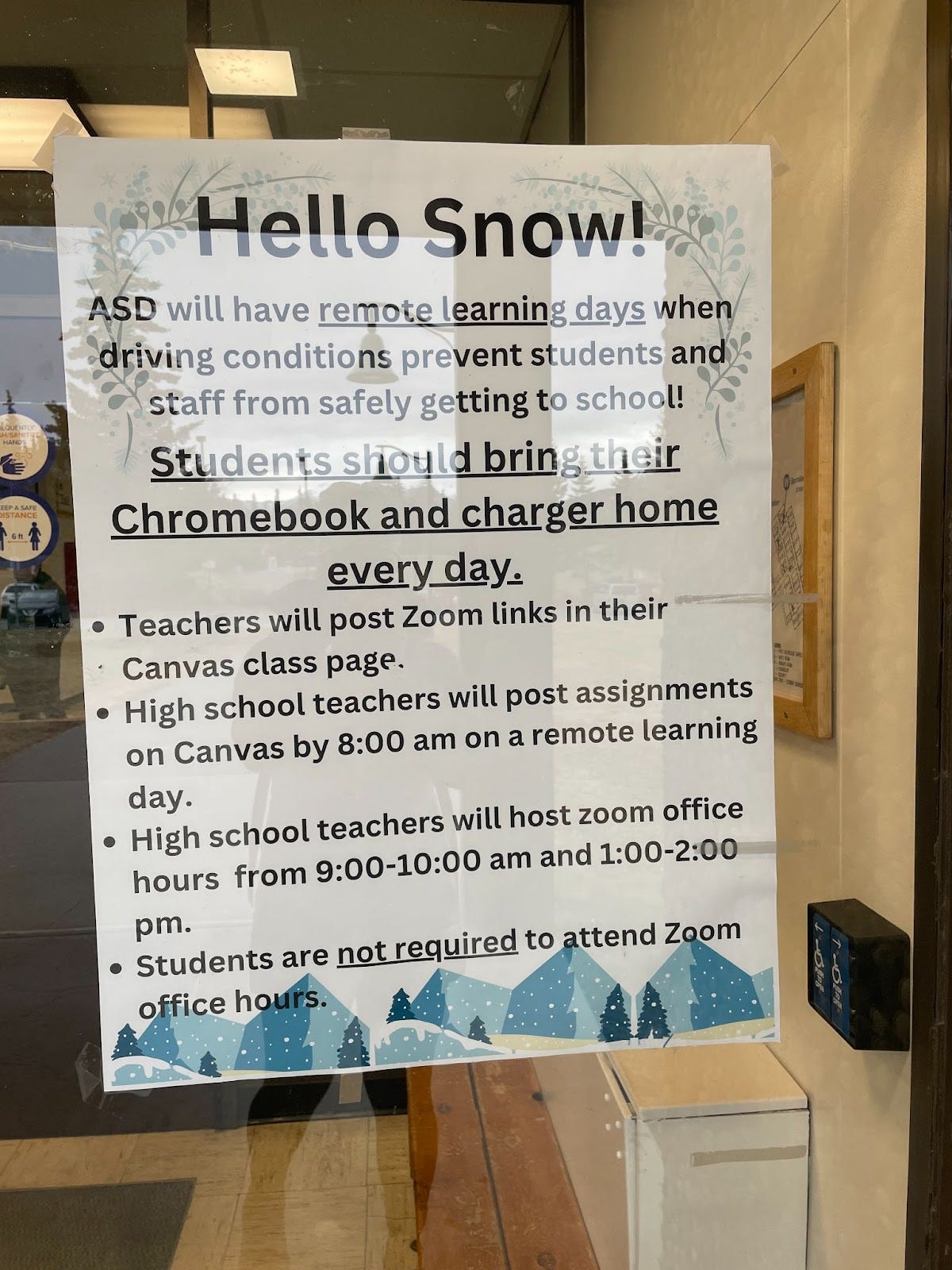
The coronavirus pandemic brought all manner of woes upon humanity, and it has now claimed yet another victim: the snow day — at least at the Anchorage School District.
Flyers posted at an Anchorage high school show how the district will now shift to “remote learning days” in the event of inclement weather.
There are still three snow days built into the school calendar, according to a district spokesperson, but it appears unlikely they will be used. The district lost seven school days to last year’s “snowpocalypse” and had to lengthen daily instructional times to make up for it.
Northern Journal is a newsletter written by me, Anchorage journalist Nat Herz. It’s free to subscribe, and stories are also free to Alaska news outlets to republish through a partnership with the Alaska Beacon.
My goal is reaching the broadest possible audience of Alaskans. But if you can afford it, please consider supporting my work with a $100 annual or $10 monthly voluntary paid membership — these are currently my only sources of revenue for this project. Your support allows me to stay independent and untethered to the demands of the day-to-day news cycle. If you’ve already subscribed, thank you.

